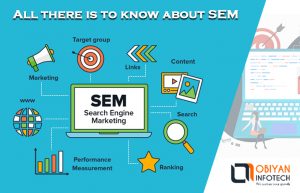Your online business is created, and you now want to promote it. However, you don’t just want to reach potential customers and may need more budget for a press campaign. Content marketing helps attract people who may be interested in your product or service. Providing great content through blog posts, infographics, images and videos, and social media posts will help them discover and engage with your business.
However, more than posting quality content in itself is required. To achieve this, it is necessary to optimize it. Optimizing your content means choosing themes and keywords, tracking keyword density, and adding visuals and other media to your content. Content optimization and other SEO tips can improve your search engine rankings and drive more traffic to your website.
What is Content Optimization?
Content optimization is accompanied by good content marketing practices to boost your positioning in search engines. It is closely related to your search engine optimization (SEO) strategy.
Transmitting information about your content to search engines is the essence of optimization. The data you provide to it makes this possible. These take many forms and can be found both in the background and on the pages of your website. Here you will find a list of all the elements to put in place for effective and optimized content.
- Keywords: these are the terms that are searched for online. When a person types words and phrases into a search bar, the results are partially based on the keywords inserted into the content of websites. It is essential to select relevant keywords when developing your editorial strategy.
- Meta and title tags: Each site page contains metadata (data about other data). They allow search engines to understand the purpose of each page. Some of this information is what you see when a webpage shows up on search engine results pages (SERPs), prompting readers to click.
- Titles and subtitles: readers and search engines better understand content when it is broken down into sections through titles and subtitles. Therefore, well-organized content improves reading quality, which enhances user experience.
- Alt text: If your content contains images, it needs to be optimized with alt text. This alt text is used to describe an image. It is also shown to users when images are not available, and, above all, it is read aloud for content accessibility reasons. Search engines use this text to analyze them better.
- Backlinks: each time a site is considered a severe affiliate with your content, it reinforces your credibility. Plus, it allows search engines to contextualize that content, increasing the number of people you can reach.
Why is it essential to optimize your content?
Developing a content strategy is essential to ensure your success on the Internet. More than good quality content is needed to guarantee a high ranking on Google, so it must be optimized. Thus, good optimization can increase your chances of appearing on the first page of search rankings. In turn, this gives you access to a larger audience. In addition to boosting your positioning on the SERPs, content optimization allows you to:
- Develop affiliate links to your website. Quality content will attract other businesses, which will naturally use your website as a source of information. The reputation of your website’s domain will be strengthened, which also contributes to the quality of your SEO.
- Encourage people to engage with your brand. Optimized content will allow more people to discover and engage with your business. Content with high-added value will help you build a good relationship with your customers.
- Increase lead generation. One of the benefits of content optimization is that it can generate leads. Well-researched content will attract potential customers to your website, allowing you to increase your audience and sell more.
- Position your business as an industry leader. Optimized content will give legitimacy to your brand. Indeed, the more your website appears in search results, the more your credibility grows and the more customers trust you.
What are the fundamentals of optimized content?
Knowledge of the basic concepts will allow you to develop an effective strategy. Applying to the creation of existing or new content, the following three fundamentals are to be remembered:
1. Search engines should easily understand the nature of your content
One of the primary goals of content optimization is to ensure that Google or other search engines see the ins and outs of your content. For that, it must first be structured. It is also important to incorporate keywords into your text naturally. Keyword research will help you discover terms you may not have thought of. However, it is important not to saturate your text with keywords to improve your SEO. Otherwise, search engines could penalize you.
2. Improve readability for your audience
Ensuring that search engines understand your content is a good start, but you must also look at its readability. Indeed, the quality of the writing, the concentration necessary to understand the text, and the simplicity of the whole are criteria that impact your credibility.
3. Provide all necessary data
Optimizing content for Google requires certain technical components as important as optimizing web pages. These include:
- Title tag and meta description tag
- Alt text for images
- Headings and subheadings, such as H1s, H2s, and H3s, used in the correct order
- Internal and external links through anchor texts (when justified)
Create qualitative and visible content
The value of content optimization lies in the fact that it is seen. If your content is optimized, you will retain many potential customers. By focusing on the basics of content optimization over time, you’ll have the potential to improve your brand visibility and become a trusted source of information for your audience.
Content optimization helps you write content that effectively drives traffic, which means more people see what you write. By writing quality content, you can increase the chances that people who read your content will return for more. However, there are other reasons you should use content optimization solutions. The critical thing to consider with content optimization is how search engines view content. Keyword stuffing, invalid links, and unwanted content can lower your search engine rankings and cost you marketing money.
You Can Read Also:
Guide to International SEO URL Structure
8 SEO Tips for Fintech Businesses
Google’s Latest Link Spam Update



